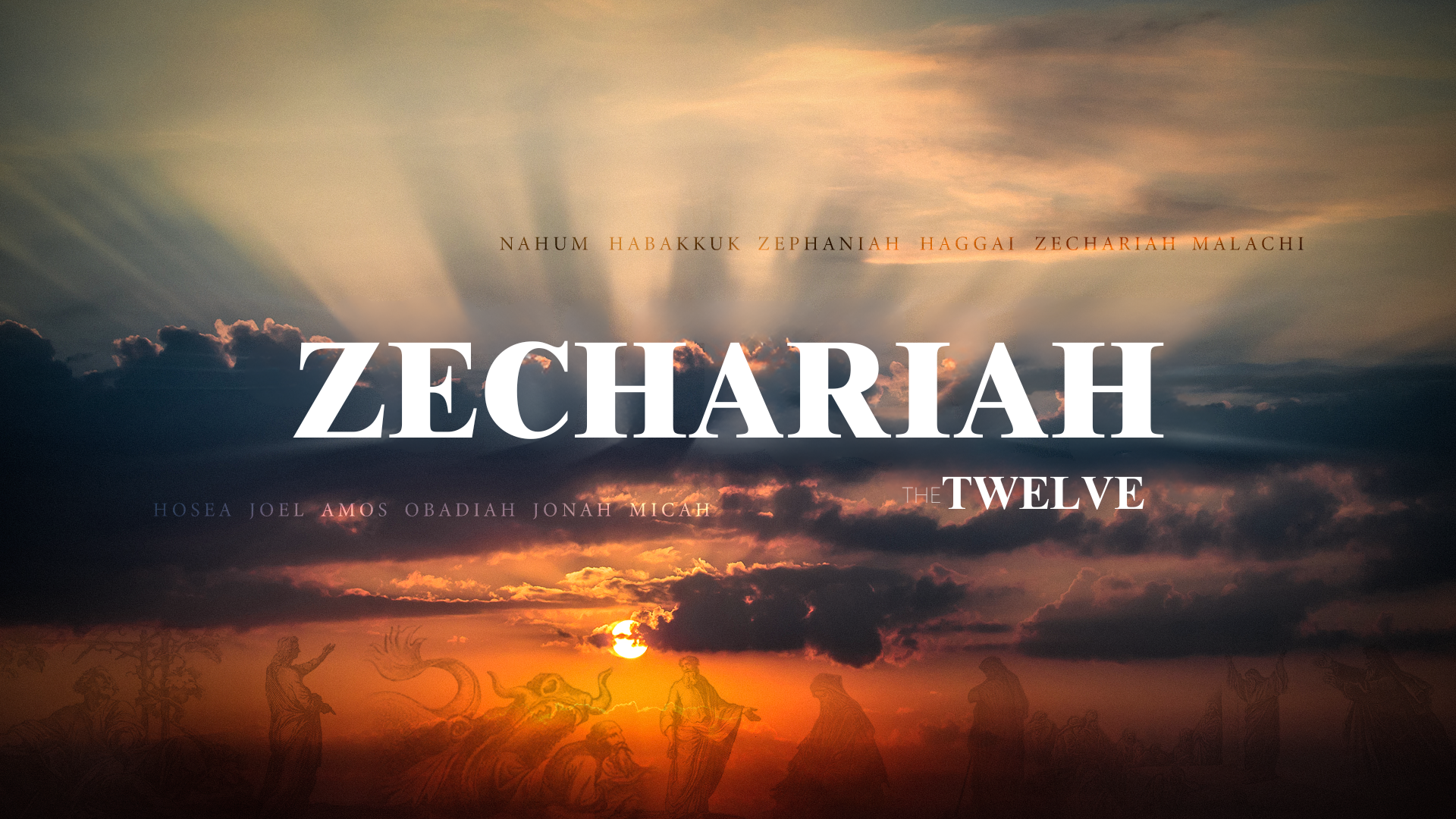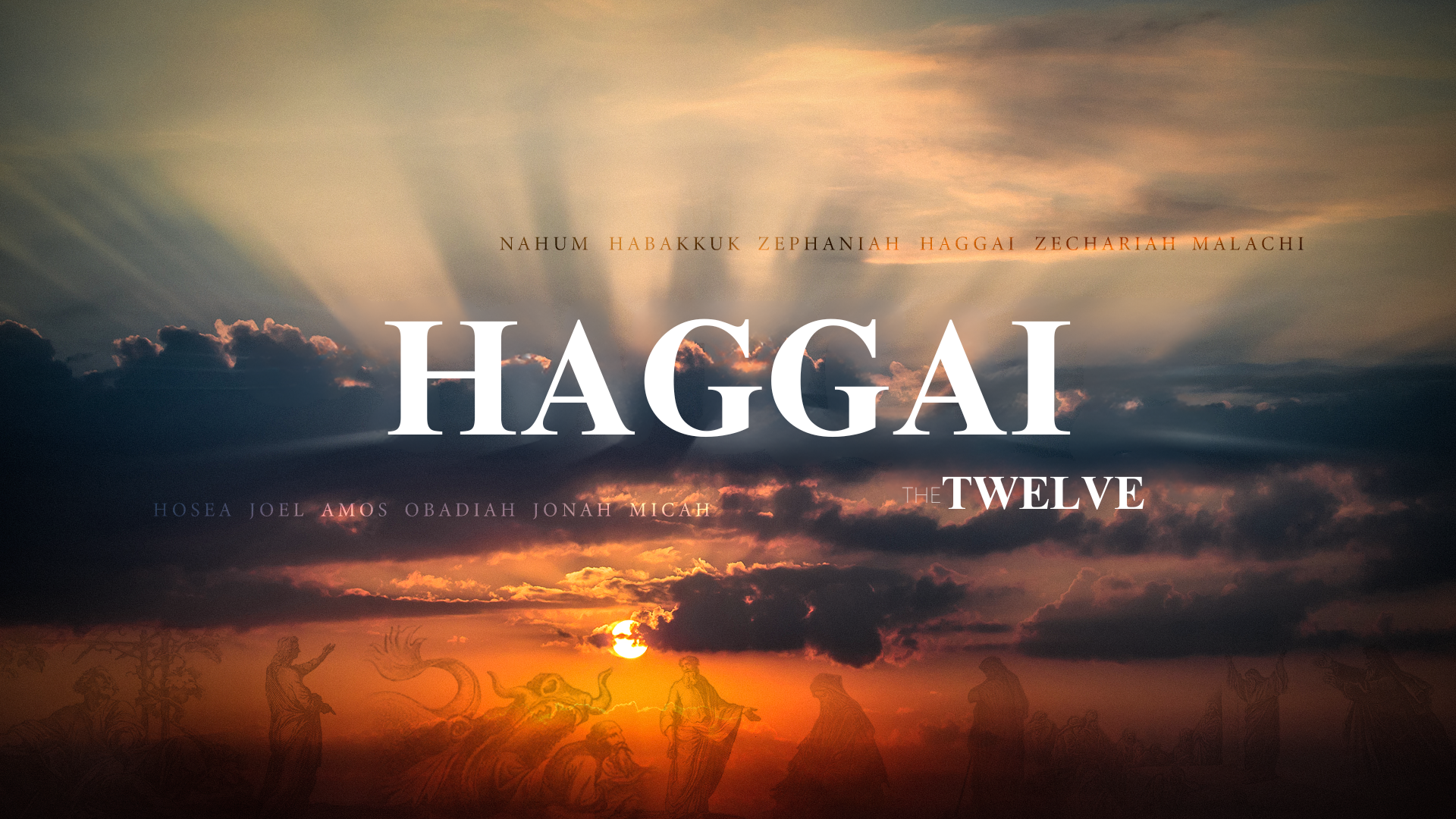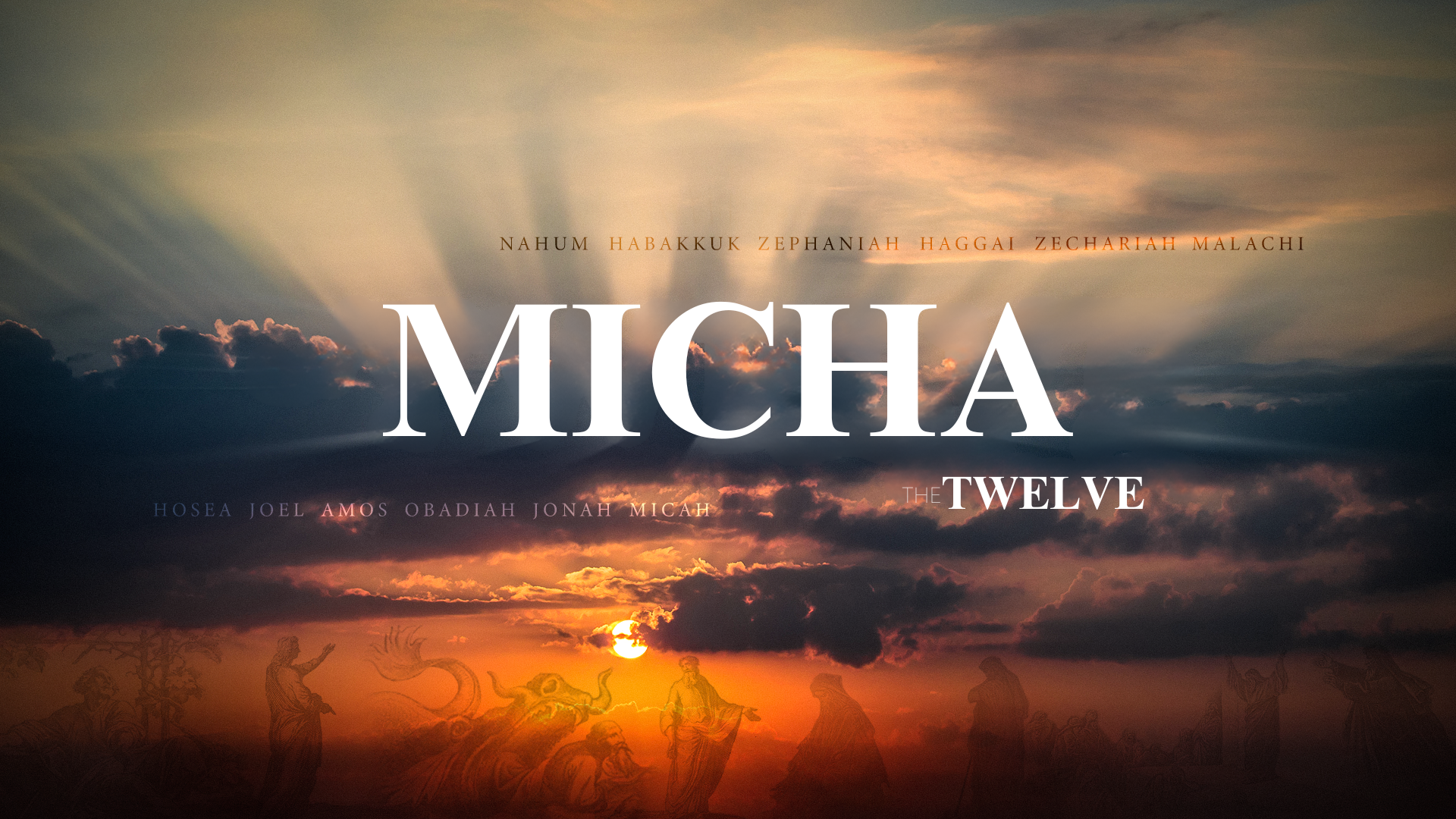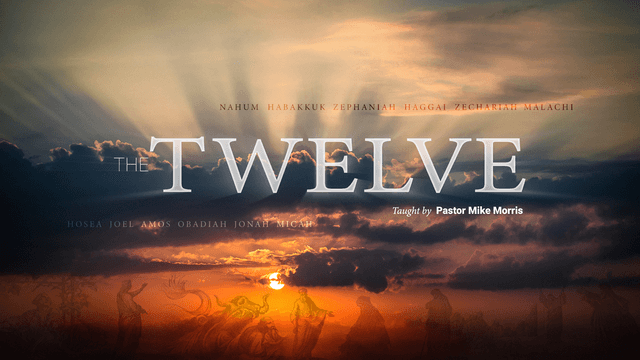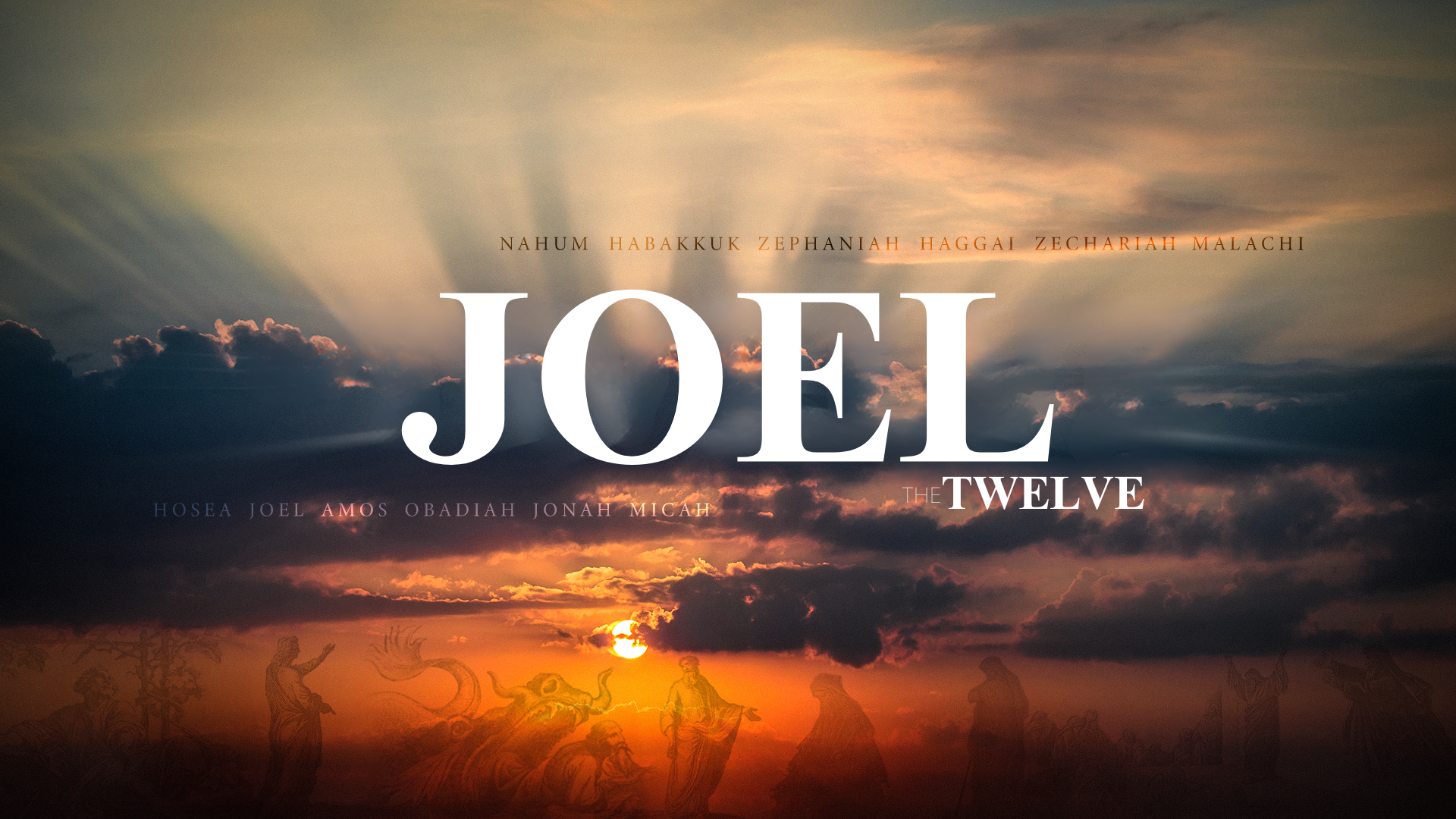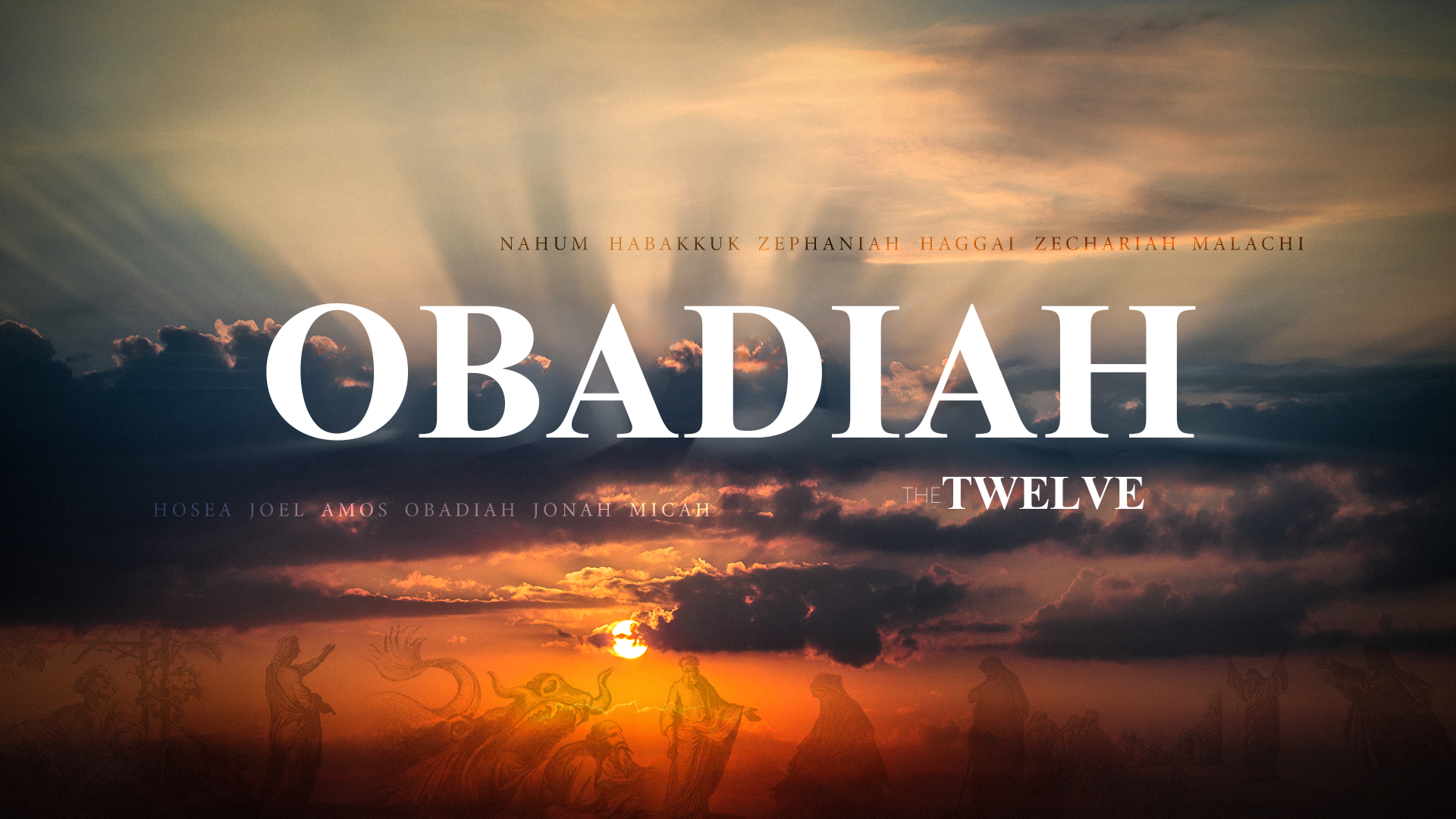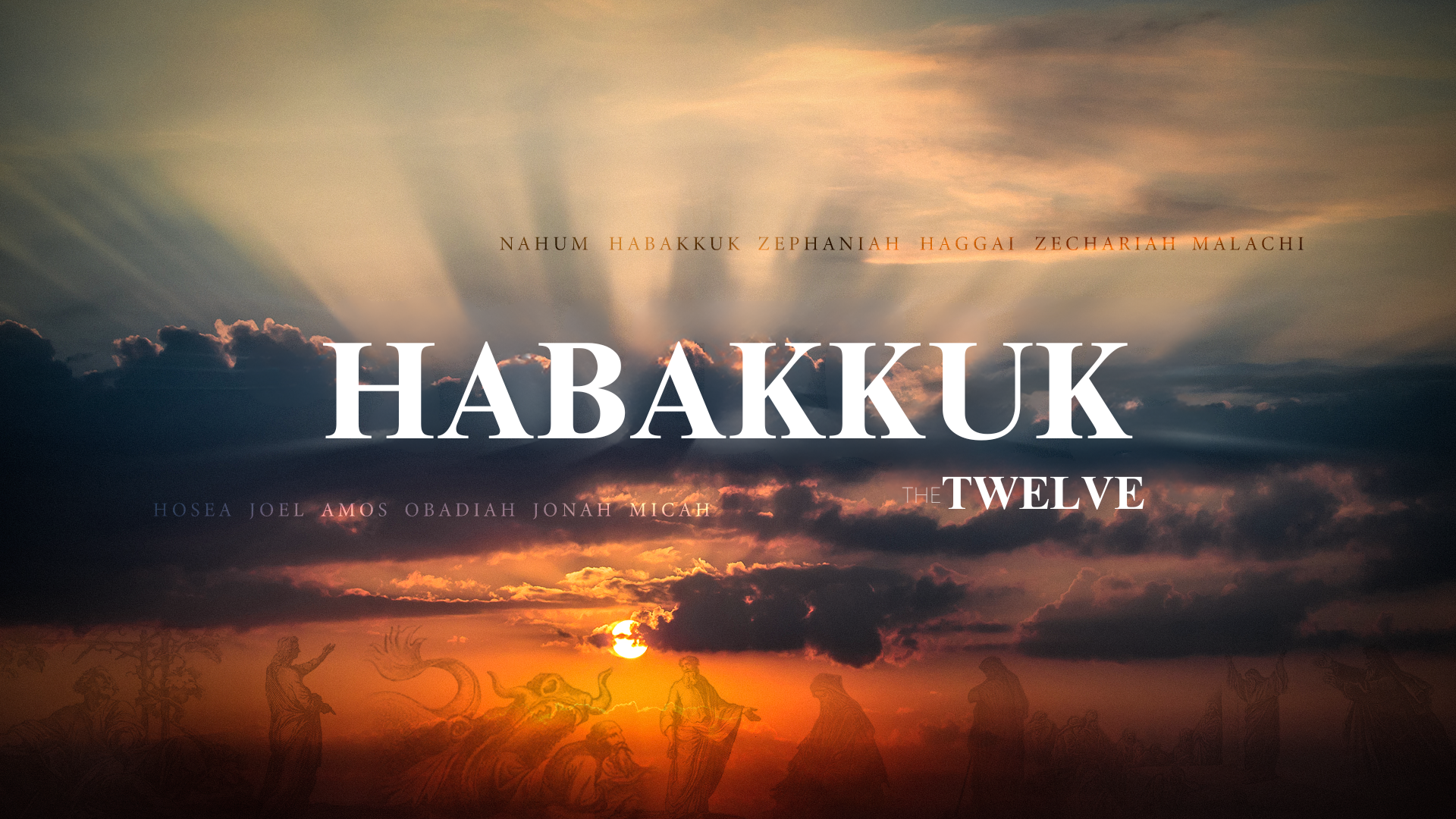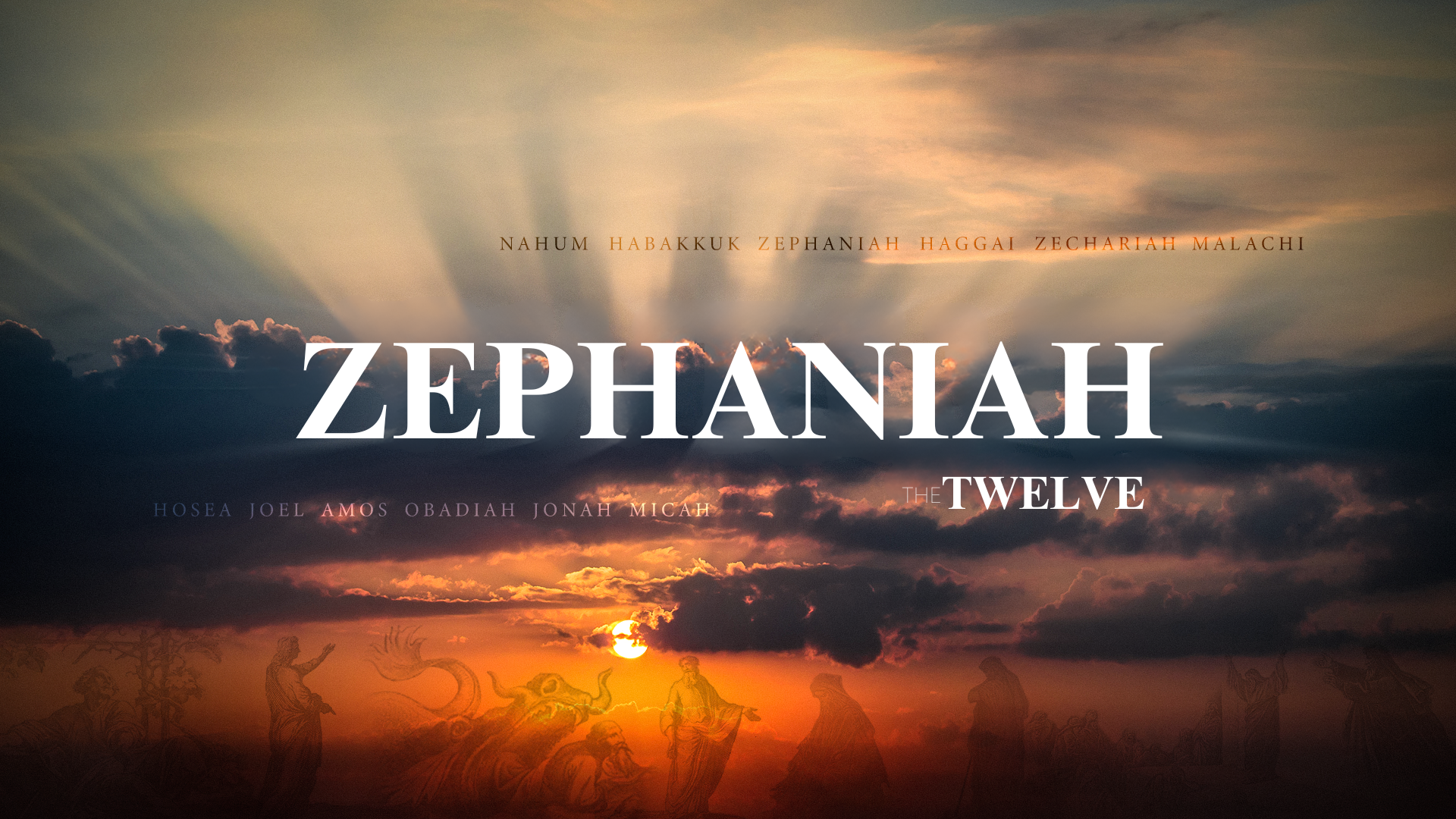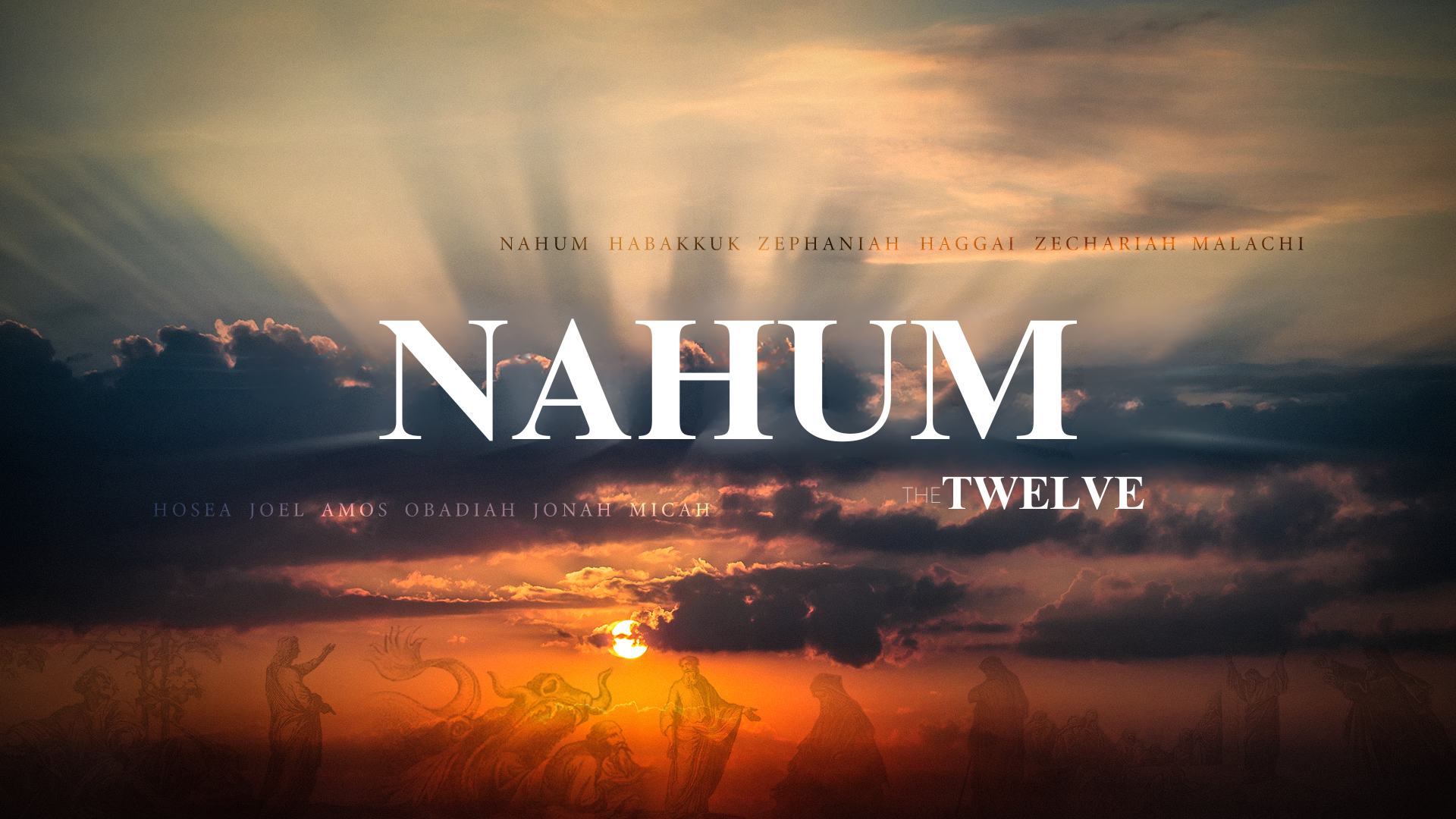MANUSCRIPT
Let’s recall the context -- northern kingdom of Israel; 760 BC, just 20 years before the beginning of the deportation of Israel into exile in the farthest reaches of the Assyrian Empire, an exile from which national Israel would not return…
SLIDE 1 -- ISRAEL IN THE PERIOD OF THE TWELVE
Last week we began the book of Amos, the next prophet following the book of Jonah, who was the first in this series on the Twelve...this book of nine chapters was written primarily to the northern kingdom of Israel, though as we saw last week, Amos delivers divine pronouncements of judgment to seven other nations that surrounded Israel, including Judah, in chapters one and two
This week we continue our study of the oracles of Amos, the bivocational prophet...we find him on the timeline just to the right of Jonah, also serving during the almost forty-one year reign of Jeroboam II, 793 BC to 743 BC...
So let’s dive into the text...first by looking at the beginning and end of the next three chapters -- 3, 4, and 5
Immediately following the end of chapter two, which ended the judgment oracles against the nations then Judah and Israel, Amos delivers three specific judgment speeches against Israel...this is the continuation of the covenant lawsuit that we discussed last week...each begins with the prophetic phrase “Hear this word...” and each ends with a description of a judgment that God will bring upon Israel
We’ll look at two of the three this morning -- chapters 3 and 4
Amos 3.1-15
As we begin this section, notice a few key points that Amos made in chapters one and two that are now repeated in chapters three and four, and which will continue to sound throughout the rest of the book...
The repeated mention of lions -- 1.2 and 3.4, 8, and 12 -- speaks to the commanding, fearsome voice of judgment
The repeated use of the word “strongholds” -- seven times in the judgment oracles of chapters 1 and 2, now repeated in chapter 3 as well -- verses 9, 10, and 11 -- affirms God’s strength in destroying man’s best defenses...
The repeated use of the word “transgressions” in 2.6 and again in 3.14 as the Lord promises punishment for Israel’s sins
Textual features like these serve to tie things together, to keep the book a powerful, holistic word of judgment against the people
Amos now speaks the word of the Lord to the people of Israel as the northern kingdom, but in a wider sense, to Judah as well, as he describes them as the “whole family” that He brought up out of Egypt...the Lord says
Hear this word that the Lord has spoken against you, O people of Israel, against the whole family that I brought up out of the land of Egypt: “You only have I known of all the families of the earth; therefore I will punish you for all your iniquities.
What could He mean? For certainly the Lord knows all things, all peoples, all nations...as the Sovereign God, there’s nothing He does not know...the Hebrew word translated here as “know” is ‘yah - dah’ -- and is an experiential and cognitive knowledge, an intimate knowledge...we could summarize the meaning here as “covenant knowledge” -- God knew Israel, and He had revealed Himself to Israel...it sounds as if this is a note of hope until the Lord concludes the sentence with a promise of punishment
For with that relationship of knowing, that great privilege of being the chosen people of God, came great responsibility...fulfilling that responsibility would bring great blessing...failing to fulfill that responsibility would result in great judgment...
Amos now begins the next step in building the covenant case against the nation...he asks them five questions, phrased in such a way to reason from an observation to a common-sense cause...
“Do two walk together,
unless they have agreed to meet?
If you observe two people walking together, the common-sense cause is that they agreed to meet together, so the answer to the question is “no”...and so with the remaining questions...
4 Does a lion roar in the forest,
when he has no prey?
No...a lion roars after he has quietly stalked and caught his prey...
Does a young lion cry out from his den,
if he has taken nothing?
No...a young lion cries out from his den when he has taken something, when he has food...
5 Does a bird fall in a snare on the earth,
when there is no trap for it?
No...if you see a bird fall in a snare, there was a trap set for it...
Does a snare spring up from the ground,
when it has taken nothing?
No...if you see a snare spring up from the ground, it’s because something triggered it, and it has caught something...
Why is Amos doing this? Because he is setting his audience up for the next verse...
6 Is a trumpet blown in a city,
and the people are not afraid?
Does disaster come to a city,
unless the Lord has done it?
Now he turns from the common experiences of a people familiar with agriculture and hunting, to the experiences of a people under attack from an enemy...the answer to the first question is also “no” -- if the shophar, the trumpet of warning and war, is blown in a city, the people will be very afraid, for that means the enemy is in the gates...and the second question seals Amos’s argument...when you observe that disaster has come to a city, as it will to Samaria and the entire northern kingdom, you can be assured that it is the Lord Who has done it...for He is the Sovereign God, and the lives and fates of kingdoms and nations, from the king to the lowliest slave, are in His Hands...then...and now
And the people of Israel can also be assured that Amos is speaking the word of the Lord...
“For the Lord God does nothing
without revealing his secret
to his servants the prophets.
8 The lion has roared;
who will not fear? No one...all will fear
The Lord God has spoken;
who can but prophesy?” No one...if the Lord speaks, prophets must prophesy...
Now the Lord calls on the enemies of Israel, Philistia and Egypt, to come and witness against her in this covenant lawsuit...
Proclaim to the strongholds in Ashdod
and to the strongholds in the land of Egypt,
and say, “Assemble yourselves on the mountains of Samaria,
and see the great tumults within her,
and the oppressed in her midst.”
10 “They do not know how to do right,” declares the Lord,
“those who store up violence and robbery in their strongholds.”
He adds to the shame of Israel by summoning the Philistines and Egyptians to come to Samaria and observe her sin...the social and economic oppression of the poor by the rich, the tumults within her...the Hebrew word is ‘meh -- who -- mah’ meaning confusion, turmoil, and chaos...the people are incapable of doing right, living according to the Law of God...instead, they store up in their strongholds violence and robbery as if they were treasures...note the irony surrounding the word “strongholds” -- the strongholds of the wicked are called to witness the strongholds of God’s chosen people, but instead of finding righteousness and kindness and justice, they find violence and robbery, injustice and oppression...now the Lord begins to declare His judgment...
11 Therefore thus says the Lord God:
“An adversary shall surround the land
and bring down your defenses from you,
and your strongholds shall be plundered.”
The Lord had given no details before, but now He begins to openly speak His judgment over Israel...they shall be surrounded, their walls destroyed, their strongholds plundered of the wealth the rich had accumulated from robbing the poor...
You can almost hear the people cry out, “And what shall be left, O Lord? What shall be left of Your people, Israel?”
Then comes the answer to the unspoken question...
12 Thus says the Lord: “As the shepherd rescues from the mouth of the lion two legs, or a piece of an ear, so shall the people of Israel who dwell in Samaria be rescued, with the corner of a couch and part of a bed.
There will be no one left in the land but a remnant...enough to show there had once been a lamb of the flock... enough of the furniture to show that there had once been a house...just enough to prove there had once been a nation there...a nation who had turned their backs on their God...and suffered His judgment
“Hear, and testify against the house of Jacob,”
declares the Lord God, the God of hosts,
14 “that on the day I punish Israel for his transgressions,
I will punish the altars of Bethel,
and the horns of the altar shall be cut off
and fall to the ground.
On the day of punishment, God calls out not just Israel, but specifically Bethel, the southern center of idolatrous worship, only 10 miles from Jerusalem...and He says He will punish the altars of Bethel, the idolatrous altars, and notice what He says next... the horns of the altar shall be cut off and fall to the ground.
What is the significance of that? The horns of the altar were the corners of the altar, protruding upward from the flat surface of the altar... the Hebrew word is ‘keh - ren’...horns often symbolically represent the king, or the strength of a people or nation...they were symbols of power and protection...you’ll recall the story in I Kings 2 of Joab clinging to the horns of the altar in an attempt to keep Solomon from killing him as Solomon consolidated power after David’s death...we need to understand what the Lord is saying here...He’s going to cut them off and they’ll drop to the ground...it’s the perfect symbolic picture of the destruction of the northern kingdom of Israel and their idolatrous worship, and it pictures the truth that there would be no protection in an idolatrous altar from the Almighty God’s judgment and wrath
And then He turns to the injustice and oppression of the poor brought about by the rich and well connected within the Israelite society...
15 I will strike the winter house along with the summer house,
and the houses of ivory shall perish,
and the great houses shall come to an end,”
declares the Lord.
The wealthy in Israel had two homes, one for each season; for example, we learn from I Kings 21 that Ahab, king of Israel, had a home for summer and another for winter
God says He will strike these opulent houses down, bringing to a sudden and violent end the wealth and lavish lifestyles of the richest people of the nation
The new chapter begins, as do chapters three and five, with the prophetic formula, “hear this word...” and the thought of judgment continues with special attention paid to the wealthy women of Samaria and Bethel...
Amos 4.1-5
“Hear this word, you cows of Bashan,
who are on the mountain of Samaria,
who oppress the poor, who crush the needy,
who say to your husbands, ‘Bring, that we may drink!’
What a shocking description from Amos...describing the wealthy women of Samaria as the well-fed cows of Bashan, the most fertile part of the region of Gilead...by their greed and desire for material possessions, and their dominance of their husbands, they represent the affluent part of society in the northern kingdom, while the poor were destitute and often deprived of basic needs, not because of an unwillingness to work, but because of the unjust and unfair practices of the wealthy, which are condemned by the righteous covenant God
Now that same God pronounces judgment on them...
2 The Lord God has sworn by his holiness
that, behold, the days are coming upon you,
when they shall take you away with hooks,
even the last of you with fishhooks.
3 And you shall go out through the breaches,
each one straight ahead;
and you shall be cast out into Harmon,”
declares the Lord.
Those wealthy women were not to remain in power much longer...the Lord God would bring unnamed conquerors -- we learn later they were the Assyrians -- upon Samaria to take the wealthy and powerful, the political and religious leaders, the artisans and land owners, away into exile...no longer would they rule Israel with idolatrous worship and oppressive economic practices...instead, the walls of Samaria would be reduced to rubble by the Assyrian army, with holes so large that using a gate would not be necessary...as the text says, you shall go out through the breaches, each one straight ahead; wherever you were in Samaria, you could walk out of the city without regard to where the wall used to be...and the Assyrians would use a particularly painful method of controlling their captives...they would connect them with ropes and hooks of various sizes in the ropes, and insert the hooks into the lips or noses of the captives...very painful and it ensured control of the people, since trying to run away and escape under those circumstances was very unlikely...their destination was uncertain, but has been tentatively identified as a location near Kadesh, probably associated with the resettlement of exiles taken by the Assyrians...but take note of something remarkable here...David Hubbard describes it well:
What must not be missed in this fierce address to the ruthless women, is the fact that they are held personally accountable. Whatever complicity their husbands may have had in their crime, here they alone are indicted and their punishment depicted. Nothing in their social system, patriarchal though it may have seemed by other standards, gave them one jot of an excuse when the days of judgment came.
Now the Lord turns from rebuking the Israelites for their greed for wealth and power to their sinful religious practices...
“Come to Bethel, and transgress;
to Gilgal, and multiply transgression;
bring your sacrifices every morning,
your tithes every three days;
5 offer a sacrifice of thanksgiving of that which is leavened,
and proclaim freewill offerings, publish them;
for so you love to do, O people of Israel!”
declares the Lord God.
Do you hear the sarcasm in this passage? The Almighty God invites them to come to their centers of idolatry to take part in what one would expect to be ritual worship, but according to God is instead “transgression”
Their actions are in accordance with the Law...tithing of the crops was mandated in Deuteronomy 14, and thank offerings and free will offerings are described in Leviticus 7 and 22...but they were wrong in both actions and in attitude...they were offered on an idolatrous altar, not for the purpose of worship of the true and living God, but toward a golden calf; and they were offered in a way that “published” or announced them, so that the praise might be to the giver instead of the God to whom the gift was given...it reminds us of Jesus’s warning in the Sermon on the Mount...
Matthew 6.1-2
1“Beware of practicing your righteousness before other people in order to be seen by them, for then you will have no reward from your Father who is in heaven. 2 “Thus, when you give to the needy, sound no trumpet before you, as the hypocrites do in the synagogues and in the streets, that they may be praised by others. Truly, I say to you, they have received their reward.
Now the Lord God turns to a crushing indictment of the northern kingdom...the key passage in today’s chapters...God has justly accused Israel of failing to keep the terms of the covenant, turning instead to the false gods of the Canaanites...and at this point we need to recall a clear truth from I Corinthians 10.18 through 21...that idolatrous worship of false gods is in fact the worship of demons...
I Corinthians 10.18-21 18 Consider the people of Israel: are not those who eat the sacrifices participants in the altar? 19 What do I imply then? That food offered to idols is anything, or that an idol is anything? 20 No, I imply that what pagans sacrifice they offer to demons and not to God. I do not want you to be participants with demons. 21 You cannot drink the cup of the Lord and the cup of demons. You cannot partake of the table of the Lord and the table of demons.
And the Israelites were also guilty of sins against others...as we’ve seen, the rich oppressing the poor, violating the Law’s commands about justice and righteousness
Yet the Lord was kind and desired them to return to Him, and He went to great lengths to get their attention...look at verses 6 through 11...as we read it, you’ll immediately notice a repeated phrase at the end of each of God’s attempts to get through to the stubborn and disobedient Israelites...”yet you did not return to Me...”
As we read through this last portion of chapter 4, there’s a particular chapter I’d like you to go home today and read through...Leviticus 26...in that chapter, God outlines the blessings He would give the people for their obedience to the covenant, and the sufferings and curses that would be theirs if they disobeyed the covenant...here’s just a portion...bear with me as I read it...
Leviticus 26.1-20
“You shall not make idols for yourselves or erect an image or pillar, and you shall not set up a figured stone in your land to bow down to it, for I am the Lord your God. 2 You shall keep my Sabbaths and reverence my sanctuary: I am the Lord. 3 “If you walk in my statutes and observe my commandments and do them, 4 then I will give you your rains in their season, and the land shall yield its increase, and the trees of the field shall yield their fruit. 5 Your threshing shall last to the time of the grape harvest, and the grape harvest shall last to the time for sowing. And you shall eat your bread to the full and dwell in your land securely. 6 I will give peace in the land, and you shall lie down, and none shall make you afraid. And I will remove harmful beasts from the land, and the sword shall not go through your land. 7 You shall chase your enemies, and they shall fall before you by the sword. 8 Five of you shall chase a hundred, and a hundred of you shall chase ten thousand, and your enemies shall fall before you by the sword. 9 I will turn to you and make you fruitful and multiply you and will confirm my covenant with you. 10 You shall eat old store long kept, and you shall clear out the old to make way for the new. 11 I will make my dwelling among you, and my soul shall not abhor you. 12 And I will walk among you and will be your God, and you shall be my people. 13 I am the Lord your God, who brought you out of the land of Egypt, that you should not be their slaves. And I have broken the bars of your yoke and made you walk erect. 14 “But if you will not listen to me and will not do all these commandments, 15 if you spurn my statutes, and if your soul abhors my rules, so that you will not do all my commandments, but break my covenant, 16 then I will do this to you: I will visit you with panic, with wasting disease and fever that consume the eyes and make the heart ache. And you shall sow your seed in vain, for your enemies shall eat it. 17 I will set my face against you, and you shall be struck down before your enemies. Those who hate you shall rule over you, and you shall flee when none pursues you. 18 And if in spite of this you will not listen to me, then I will discipline you again sevenfold for your sins, 19 and I will break the pride of your power, and I will make your heavens like iron and your earth like bronze. 20 And your strength shall be spent in vain, for your land shall not yield its increase, and the trees of the land shall not yield their fruit.
The chapter continues with more and similar consequences...now hear God’s specific word to the nation
Amos 4.6-11
“I gave you cleanness of teeth in all your cities,
and lack of bread in all your places,
yet you did not return to me,”
declares the Lord.
• The Lord brought scarcity of food, if not a famine...their teeth were clean because they had not eaten anything...
7 “I also withheld the rain from you
when there were yet three months to the harvest;
I would send rain on one city,
and send no rain on another city;
one field would have rain,
and the field on which it did not rain would wither;
8 so two or three cities would wander to another city
to drink water, and would not be satisfied;
yet you did not return to me,”
declares the Lord.
Adverse weather patterns didn’t get their attention as being from God...
“I struck you with blight and mildew;
your many gardens and your vineyards,
your fig trees and your olive trees the locust devoured;
yet you did not return to me,”
declares the Lord.
Also, plagues and disease came upon their most important crops...yet they did not return to God...
10 “I sent among you a pestilence after the manner of Egypt;
I killed your young men with the sword,
and carried away your horses,
and I made the stench of your camp go up into your nostrils;
yet you did not return to me,”
declares the Lord.
Pestilence came upon them as the Lord had brought on Egypt in the days of the Exodus...and war fell upon the nation, with great loss of life, leaving them defenseless before their enemies...yet they still did not return...
11 “I overthrew some of you,
as when God overthrew Sodom and Gomorrah,
and you were as a brand plucked out of the burning;
yet you did not return to me,”
declares the Lord.
“Overthrew” renders the Hebrew ‘mah - pe - kah’ -- used six times in the Old Testament; it means to terminate a people or a ruler by force; God overthrew some of Israel, comparing the judgment to that which befell Sodom and Gomorrah, the cities east of the Jordan mentioned in Genesis 19...this is likely not an exact reenactment of the destruction of the cities by fire falling from heaven, but instead a military conquest done with the same speed and ferocity
The “brand plucked from the burning” seems to indicate the few that were to survive the siege and the exile...
Now the Lord concludes the judgment oracle in verses 12, finishing with His signature in verse 13
“Therefore thus I will do to you, O Israel;
because I will do this to you,
prepare to meet your God, O Israel!”
13 For behold, he who forms the mountains and creates the wind,
and declares to man what is his thought,
who makes the morning darkness,
and treads on the heights of the earth—
the Lord, the God of hosts, is his name!
What do we learn from this stunning judgment? There are many, but here are four...
The Sovereign God is in control of this world...He is bringing all things in heaven and on earth to their appointed ends...when you see events happen in our world, you can be certain that they are not random, they are not meaningless...He is about His work
Sin has consequences -- we are accountable before God to live according to His word
Look for His purpose in events...the Israelites did not understand that the adversity that were experiencing as a nation was intended to move them toward God...to return to Him...we should learn from their mistakes and as we live our lives, ask the question, “Lord, what are You seeking to show me? To teach me?”
We must understand that God calls us to live according to His justice and righteousness... and that’s the homework for the first week of September -- read Amos chapter 5...next week, Mark Fortney, one of our pastor search consultants, will be here to preach, and on 29 Aug, Wes will begin a study through the NT book of Jude...don’t miss it
If you need to talk with or pray with someone, or to have someone pray for you, please look to your left/my right at the close of the service…our prayer ministers will be waiting for you

Taught by Mike Morris
Associate Pastor of Verse By Verse Fellowship
The Twelve Series
